‘We learn more about society when we lose, far more than we learn when we win’
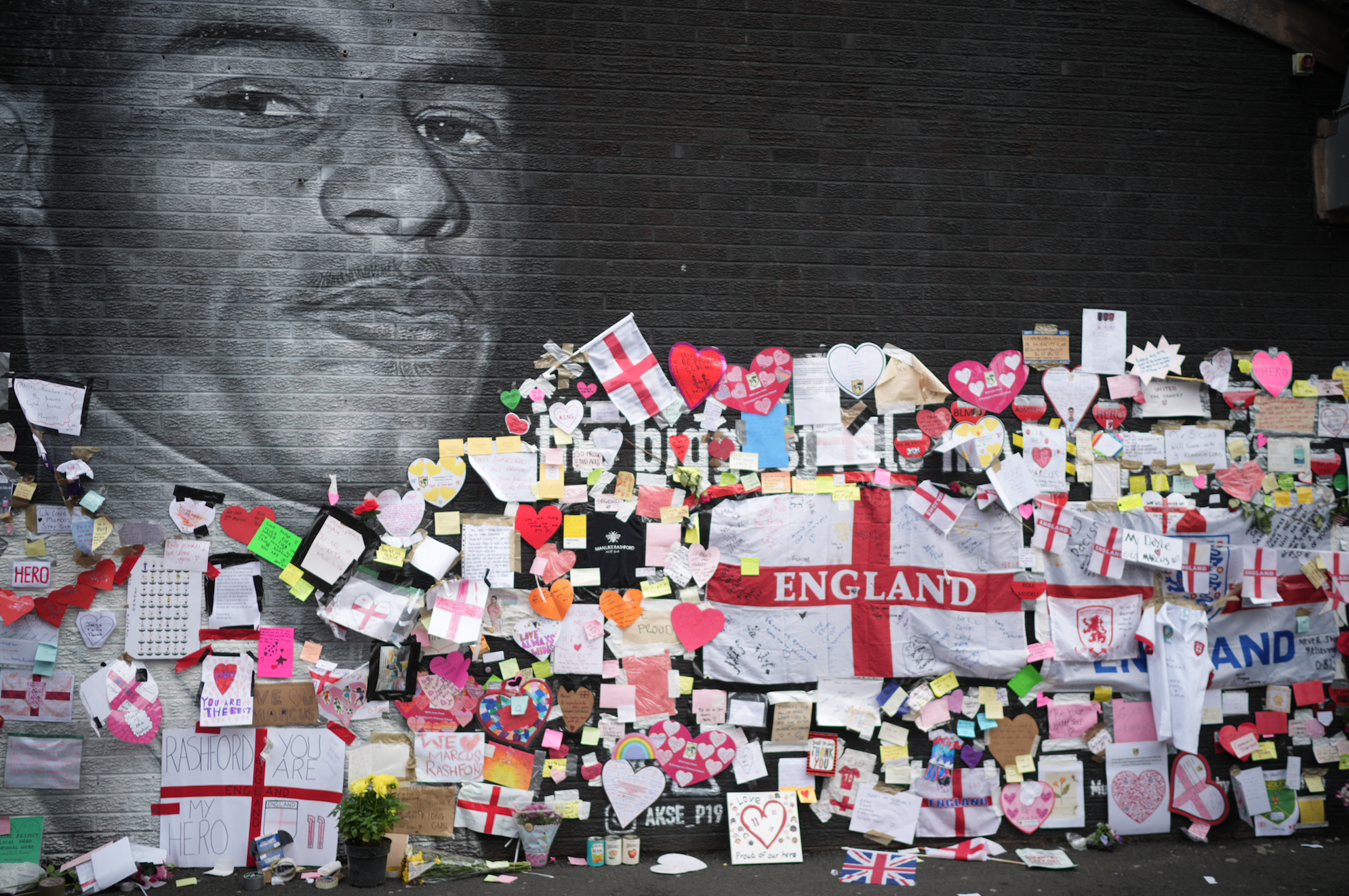

Sunday saw England make history, with Gareth Southgate and the national team reaching the Euro 2020 final for the first time ever.
The Wembley match against Italy brought in a record 31 million UK viewers, uniting the country after weeks of excitement.
England’s loss in a nail-biting 3-2 penalty shootout however turned an exciting historic night into a toxic one that we cannot and will never forget.
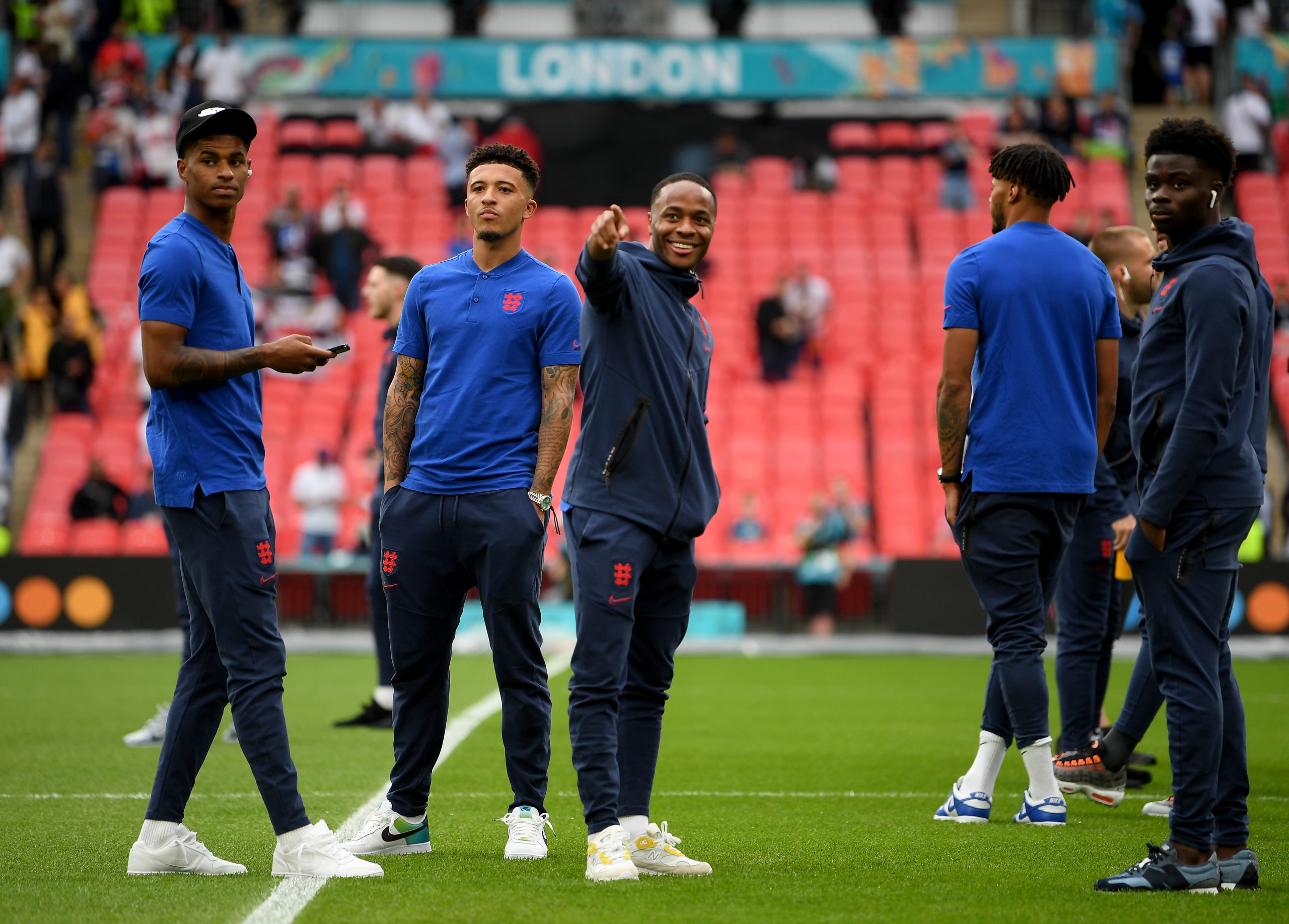
Within minutes, the internet had turned into an explosion of racism against three Black penalty takers - Marcus Rashford, Jadon Sancho and Bukayo Saka.
The three young men who would have been celebrated had they scored their penalties were immediately racially attacked online by England fans, told to go home, with their social media platforms flooded with emojis of monkeys and bananas. And offline, the abuse continued, with a mural of Rashford publicly defaced in a Manchester town where he once lived.
Perhaps the most shocking part though is the fact that this shocked no one.
We knew this could happen, we feared this could happen and we let this happen.
Marie Claire Newsletter
Celebrity news, beauty, fashion advice, and fascinating features, delivered straight to your inbox!
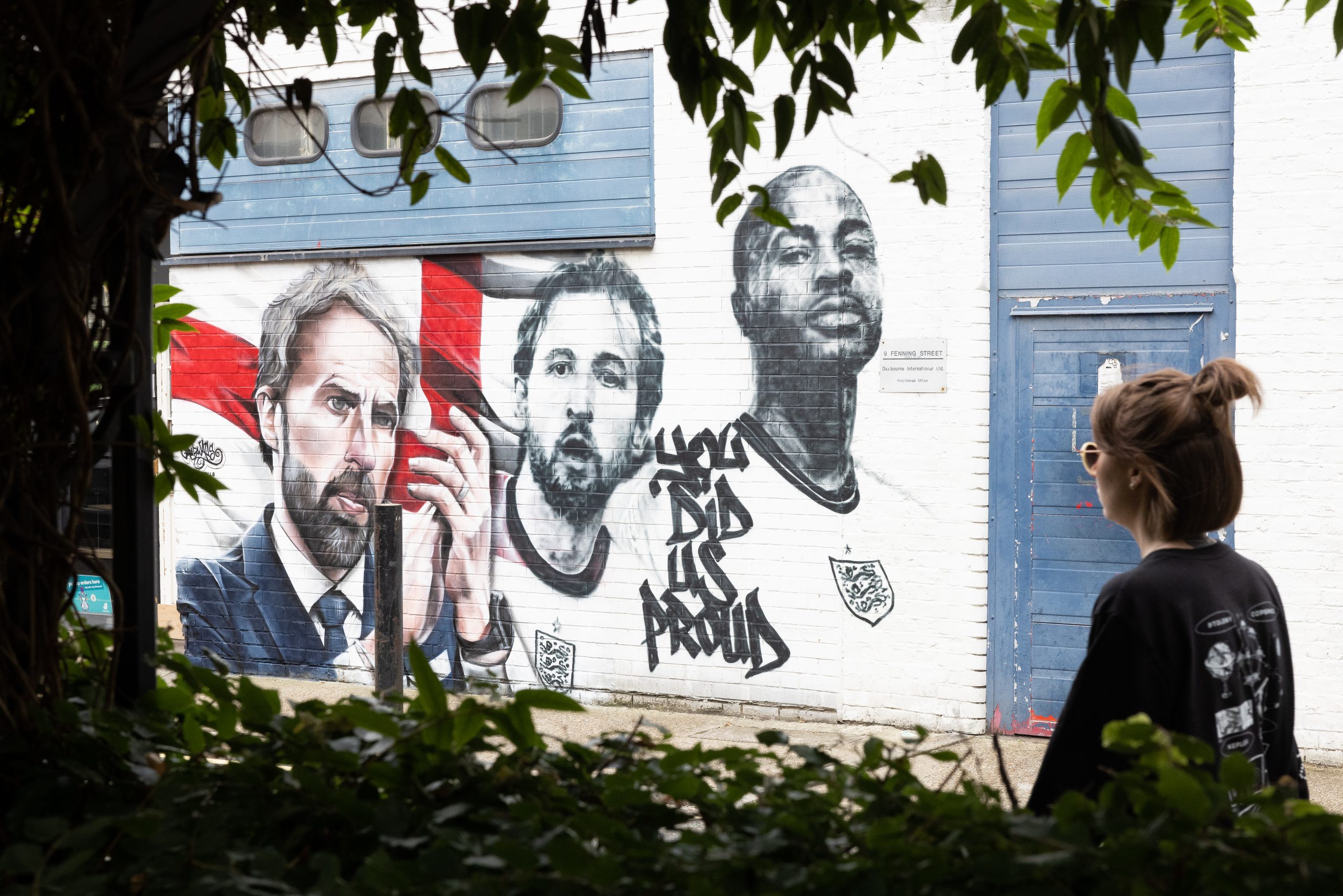
As the England squad comforted the penalty-takers after the loss, my friend turned to me grim-faced and said, ‘this is going to get really bad’ - and he was right.
So if we know that there’s a problem, why isn't the UK government actively trying to fix it?
From the very start of the Euros 2020, there was clearly an issue with racism, with players booed by England fans for taking the knee at the start of matches - a symbol to highlight racial injustice.
This abuse was only enabled by the Home Secretary Priti Patel who condemned the taking of the knee, refusing to support ‘people participating in that type of gesture politics’ and choosing not to criticise the booing fans, stating: ‘That’s a choice for them quite frankly’.
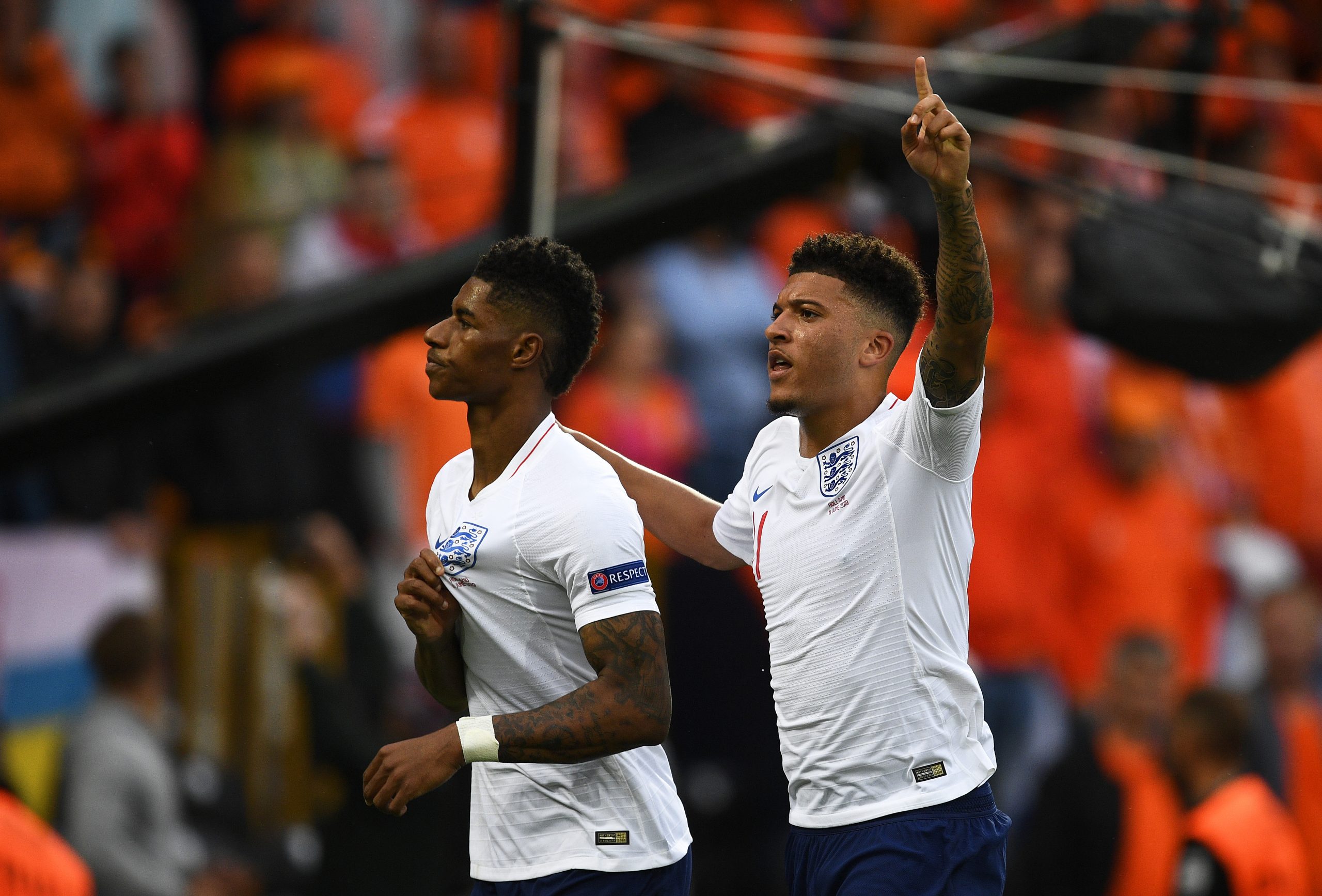
There were clear signs and nothing was done, but now we have to take action. We must use this appalling moment as a catalyst for change.
The metropolitan police is investigating the online attacks with pressure mounting to hold those involved accountable. But we must do more. We must actually stop this from happening rather than just punishing the perpetrators when it does.
‘There is absolutely no place for racism in football or anywhere else,’ wrote London mayor Sadiq Khan. ‘Those responsible for the disgusting online abuse we have seen must be held accountable – and social media companies need to act immediately to remove and prevent this hate.’
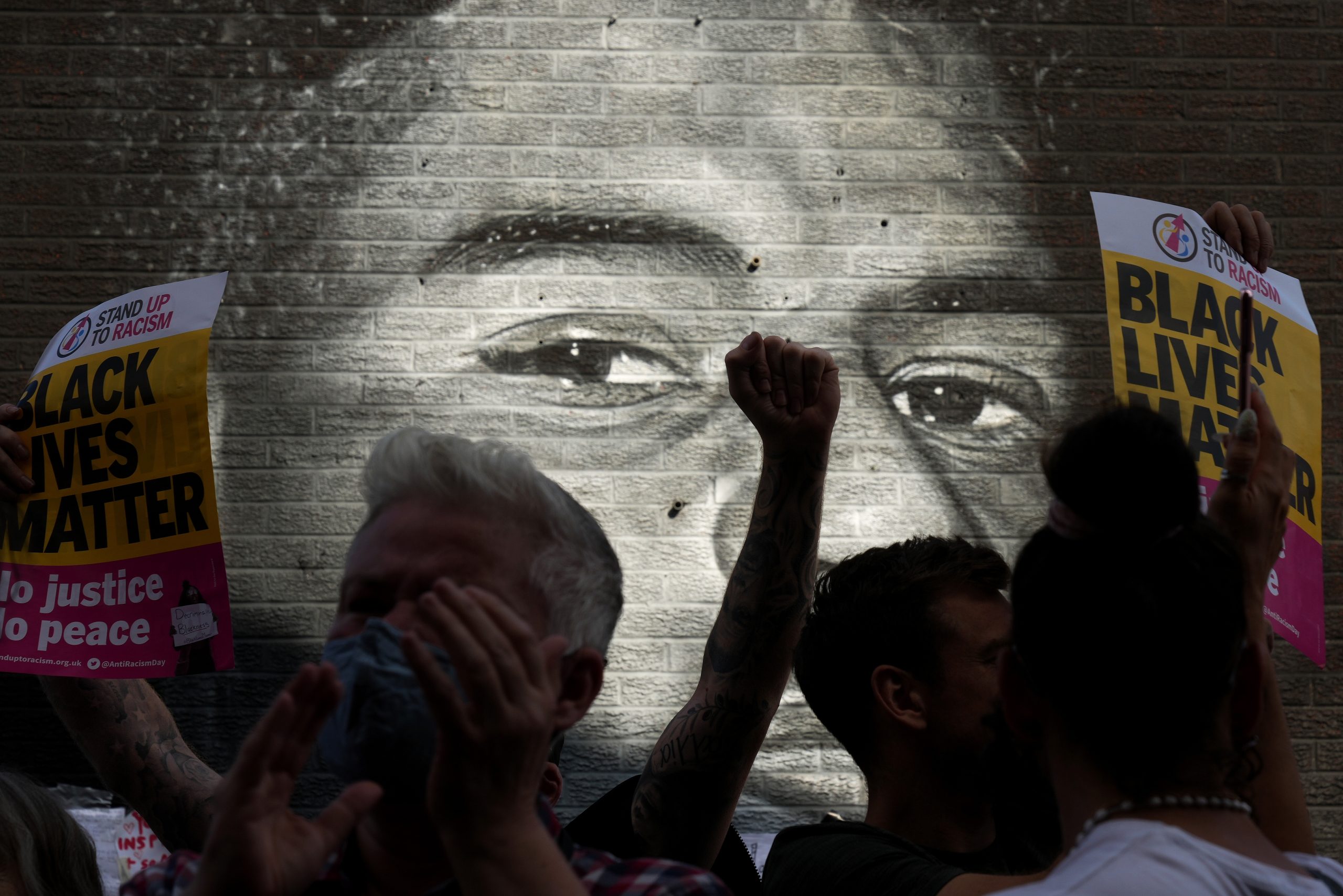
As well as calling on social media companies and police to hold offenders accountable, high profile names have been calling on the UK government to take action, open conversations and make actual change. ‘Let’s talk,’ posted Rio Ferdinand, tagging Boris Johnson and the Football Association. ‘We need to end racism and hate in football’.
Home Secretary Priti Patel has since vocalised her condemnation of the racist abuse, called out for her hypocrisy immediately by England player Tyrone Mings.
‘You don’t get to stoke the fire at the beginning of the tournament by labelling our anti-racism message as ‘Gesture Politics’ & then pretend to be disgusted when the very thing we’re campaigning against, happens,’ he stated.
And while Prime Minister Boris Johnson has also criticised the fans ‘responsible for this appalling abuse’, it was pointed out that it was he who famously described black Africans as ‘piccaninnies’ with ‘watermelon smiles’ back in 2002 - something that explained the watermelon emojis that flooded the twittetsphere on Sunday.
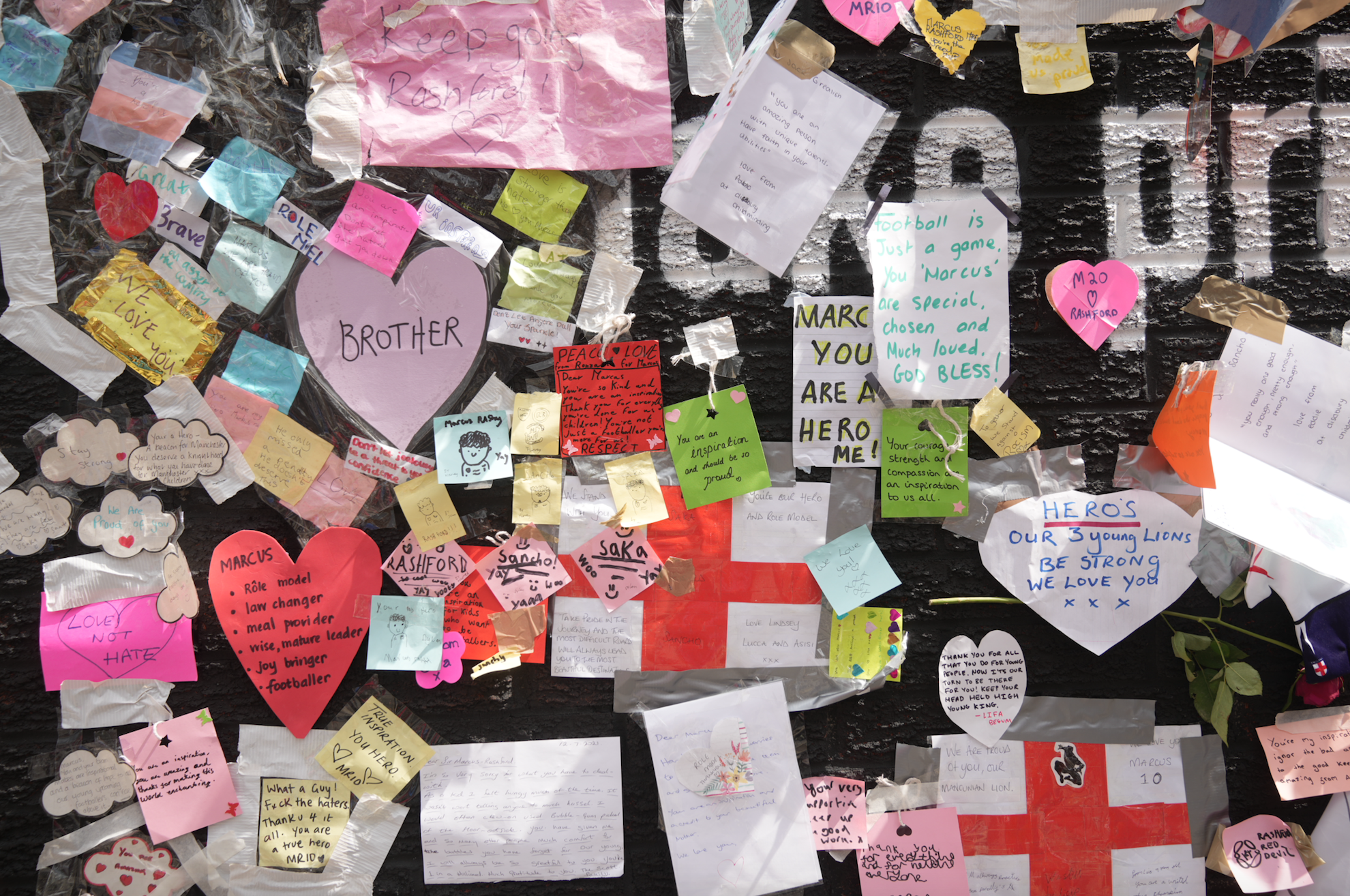
‘We learn more about society when we lose, far more than we learn when we win,’ England footballer Reece James announced following the backlash - and he’s right.
These past few days have been an appalling reminder of the deeply imbedded systemic racism in this country.
‘All of that progress. All of that love and pride and unity, all to end in racism and abuse,’ wrote activist Jameela Jamil in a statement. ‘That’s how we will now remember this final. Not as the extraordinary victory of such a brilliant England team for even making it to the final, but as the lowlife vitriol of football fans.’
We must do better, start talking, take action, put pressure on the government and use this moment for change both on and off the pitch.
We cannot afford to be complacent just because the conversation makes us uncomfortable.
It’s 2021 and there is absolutely zero place for racism in our society.

Jenny Proudfoot is an award-winning journalist, specialising in lifestyle, culture, entertainment, international development and politics. She has worked at Marie Claire UK for seven years, rising from intern to Features Editor and is now the most published Marie Claire writer of all time. She was made a 30 under 30 award-winner last year and named a rising star in journalism by the Professional Publishers Association.
-
 I'm the founder of an ethical brand marketplace - why, in the wake of tariff-gate, protecting independent businesses is more important than ever
I'm the founder of an ethical brand marketplace - why, in the wake of tariff-gate, protecting independent businesses is more important than everThis Earth Day, the founder of Wolf & Badger shares why protecting sustainable brands is so pivotal.
By Ally Head
-
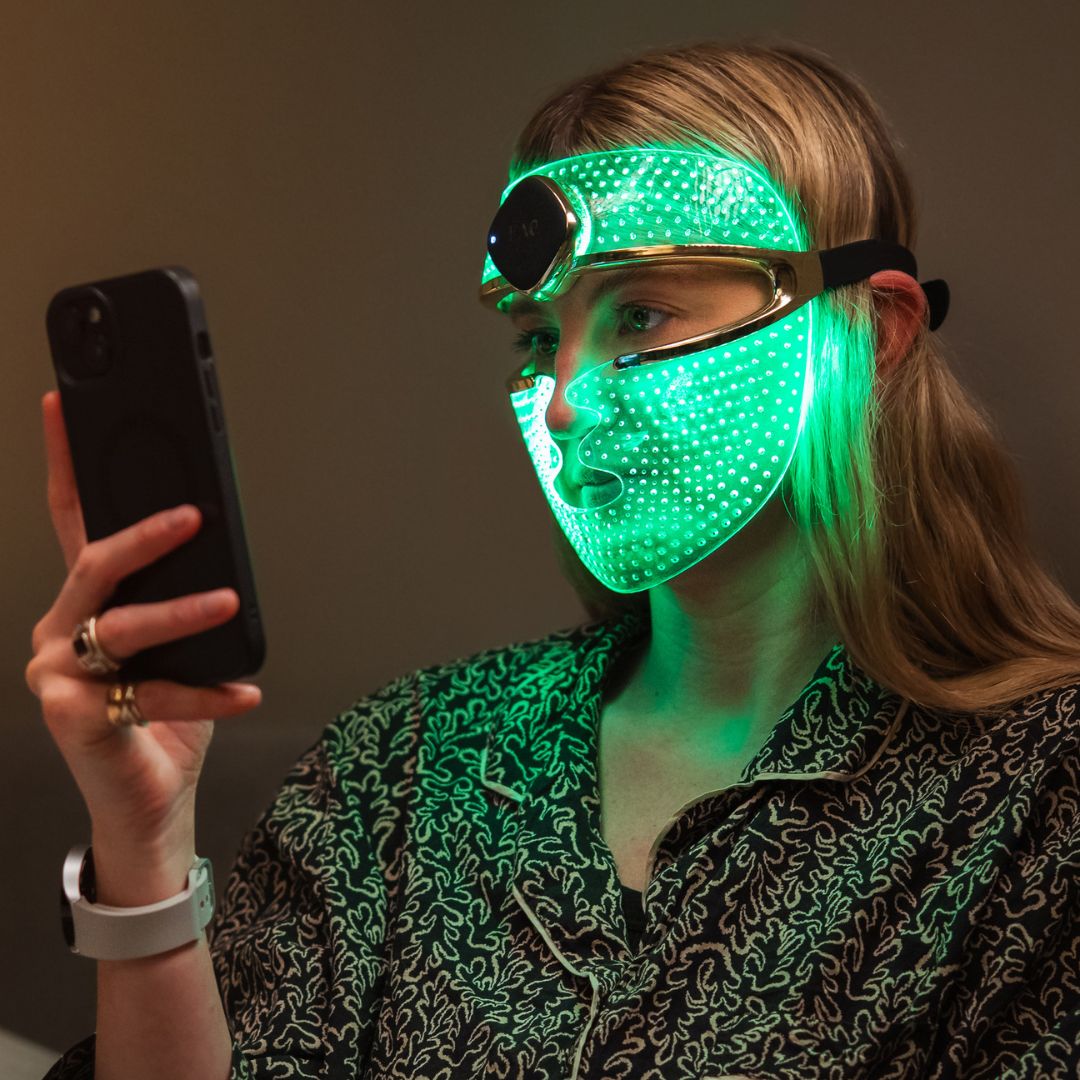 Three ways to enhance your skincare routine with technology
Three ways to enhance your skincare routine with technologyBy Jenny Proudfoot
-
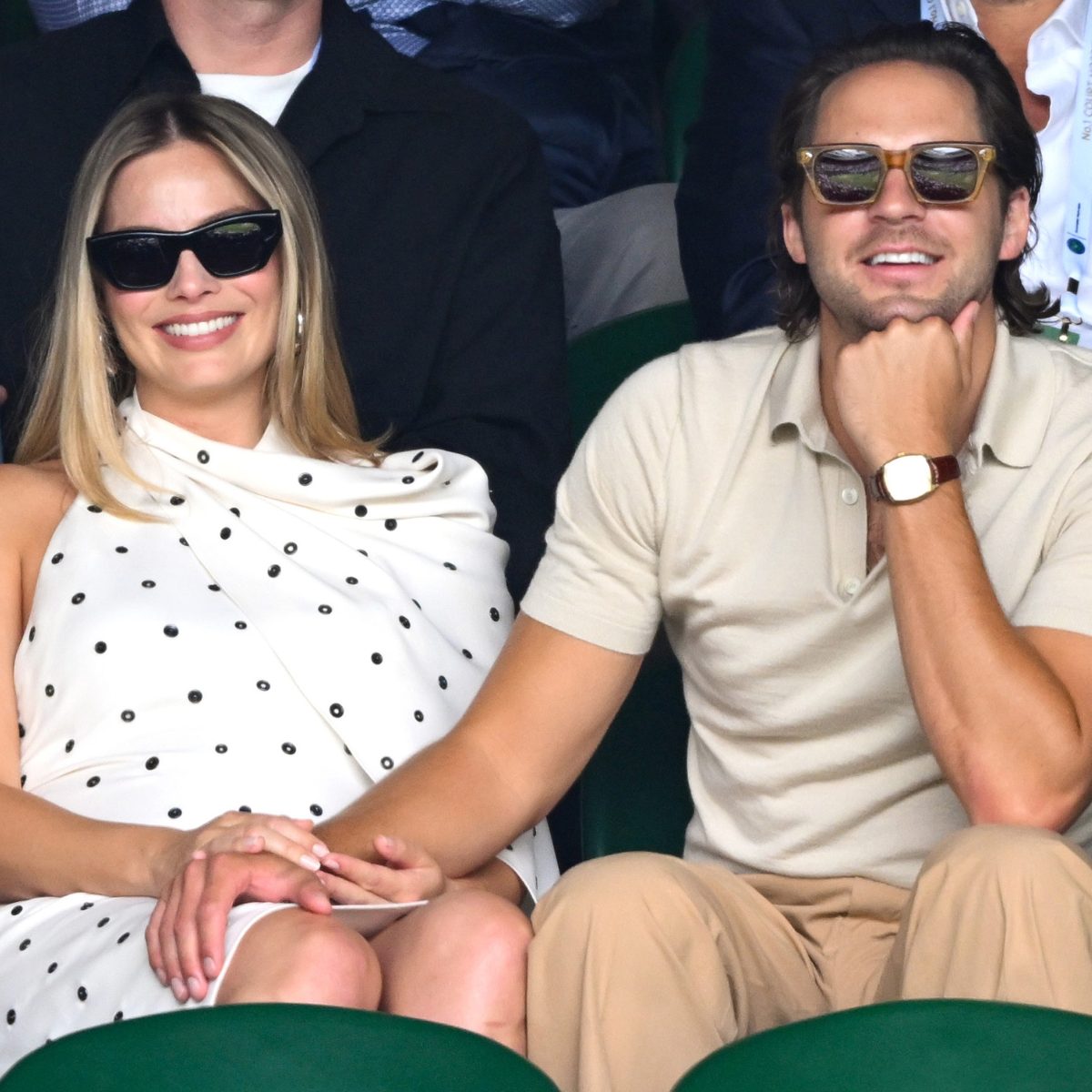 Margot Robbie's new necklace has the most emotional meaning
Margot Robbie's new necklace has the most emotional meaningSo sweet
By Iris Goldsztajn